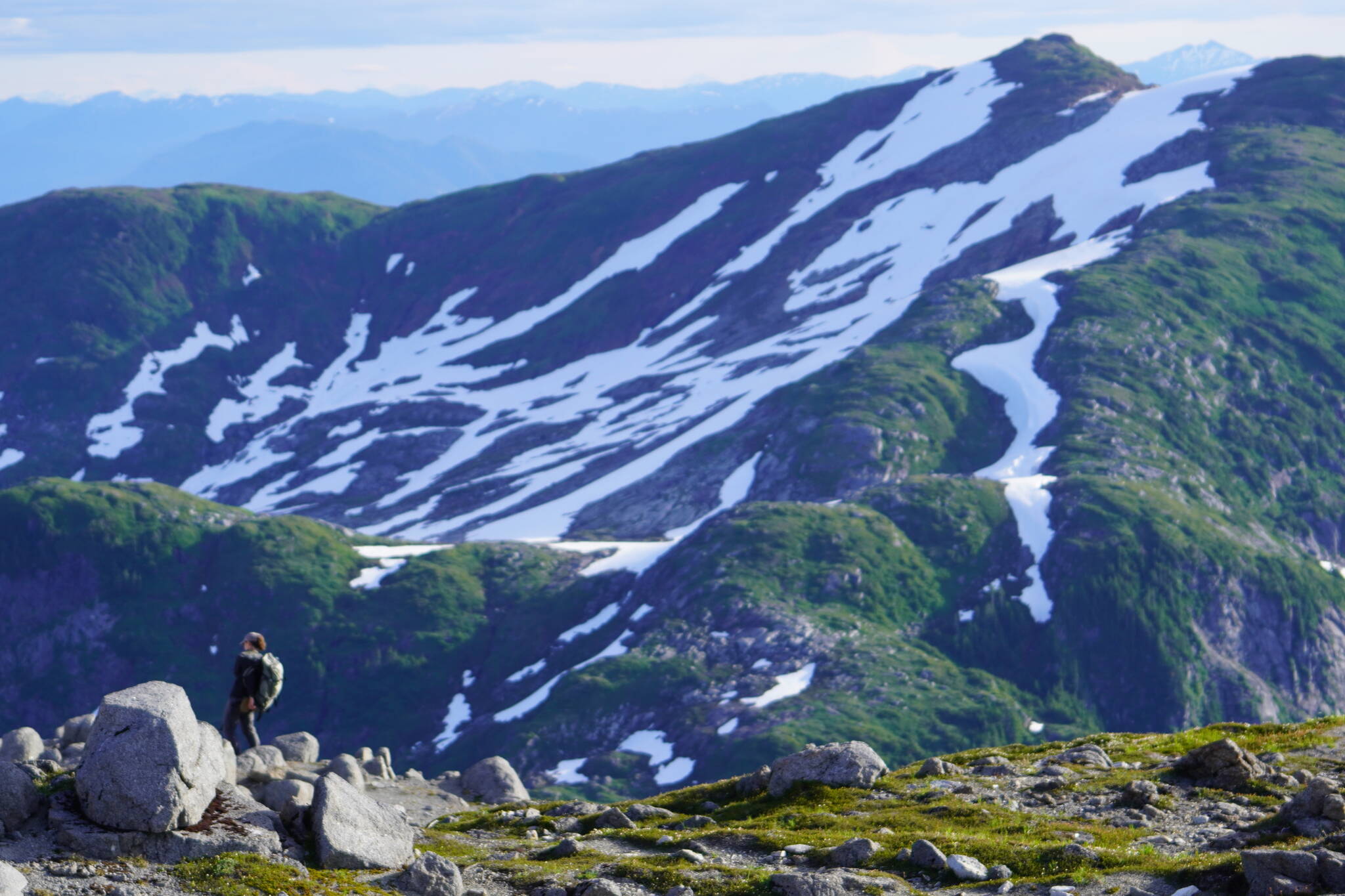There is a point in a long, steep or heavy-pack hike when you look at your feet and accept the speed at which they are moving. This is it. Autopilot engaged. You’re not going to stop. You’re going to make it. It won’t be fast, but it will be done.
Food thoughts drive you because you can’t make camp until you’re at a place you can make camp, and you can’t eat dinner until you’ve made camp, so stopping just delays arrival at camp and therefore dinner. Keep pushing.
Melted snow turns into tiny trickles and waterfalls that sound at least double their size and you think the pure, alpine water has to have double the hydration capabilities. You want to bury your face in the flow. Not those bug-invested alpine pools with stagnant water, though you might consider lapping the surface if desperate enough.
Food. Water. Water. Food.
You dream of what you have in the pack that’s weighing you down, and nothing sounds better than freeze-dried Pad Thai. You’d never cook one at home, but on the mountain it’s gourmet. As long as you do a thorough job stirring. To fail at such a simple task is disappointing, bordering on catastrophic. You were ravenous and dehydrated, but you made it through. You applied the hashtag, showed grit and made it up the last pitch to camp on top, not in the saddle, because you knew the you of tomorrow morning would be happy and proud the you of now did the extra work. How could you possibly then not make sure the boiling water reached the corners of the package to ensure all bites would be reconstituted? Stir like you mean it!
You finish the meal, down a liter of freshly pumped water through a filter you should have replaced three trips ago and feel the chill of evening. Thin clouds swoop over the ridge below you like a never-ending combover.
You stretch a bit, read about Alaskan legends like Frank Glaser or Dick Proenneke then fall asleep in a synthetic down sleeping bag that rests on an inflatable sleeping pad, all of which is under the protection of an ultralight tent.
In the morning, after a few belligerent mountain goats question your presence, you awake, unzip the tent and take the first steps of the new day. You twist right, twist left. You touch your toes, you walk around. You feel fine. You feel worked out, but not ruined. You exhausted that day’s supply of energy, you didn’t work your body into the negative. Your muscles are fatigued, your joints aren’t wrecked. This realization makes you feel good, if not great.
You’re not a wilderness athlete or high-performing backcountry influencer. You’re just you. But you’re not sore and you’re ready to tackle the remaining eight miles in the rugged land.
You previously realize that once you lose it, it may never come back and if it does, it might not be the same. So you vowed to never lose it. You’ll get in shape and stay in shape, which leads to getting into better shape since stagnancy doesn’t really exist. You don’t get in stagnant shape. You get in bad shape. These are the sort of distinctions you make and realities you understand, which leads you do those blissful mornings of feeling good and ready rather than used up.
It’s not about you vs. Alex Honnold, Cam Hanes, Courtney Dauwalter or whomever else leads your preferred genre. It’s you vs. you. The way it’s always been.
Get out there, and make sure you stir those corners of the Pad Thai.
• Jeff Lund is a freelance writer based in Ketchikan. His book, “A Miserable Paradise: Life in Southeast Alaska,” is available in local bookstores and at Amazon.com. “I Went to the Woods” appears twice per month in the Sports & Outdoors section of the Juneau Empire.


